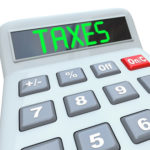Looking to own a rental property?
Did you know there are many tax benefits when it comes to owning a rental property? Check them out below:
Just about every expense associated with a rental property is deductible. The following are tax deductible costs associated with owning a rental property:
- Cleaning & Maintenance
- Homeowners insurance
- Mortgage Interest
- Property taxes
- Utilities (if you pay them instead of the tenant)
- Phone costs, PO Box, internet costs related to your rental property
- Repairs & Supplies
- Educational Expenses
- Real estate club dues
- Tenant credit report fees
- Professional fees
- Management Fees
- Homeowners association fees
Insurance deductions: You can deduct the premiums you pay for almost any insurance for your rental property activity. This includes fire, theft, and flood insurance for rental property, as well as landlord liability insurance. And if you have employees, you can deduct the cost of their health and workers’ compensation insurance.
Legal and professional service deductions: You can deduct fees that you pay to attorneys, accountants, property management companies, real estate investment advisors, and other professionals. You can deduct these fees as operating expenses as long as the fees are paid for work related to your rental property activity.
Capital gains on a rental property: When you sell a rental property, the profits are taxed as capital gains as opposed to ordinary income. The difference is important, because the maximum capital gains rate is 15 percent, whereas the maximum tax rate on ordinary income, as of 2010, is 35 percent.
 Doing a 1031 Exchange on a rental property: If you plan to sell your rental property and buy a larger one, there is only one smart way to do it: through a 1031 exchange, also called a deferred exchange. In this process an exchange facilitator takes the cash that comes out of your sale and holds it until you close escrow on a replacement property. You must identify that property within 45 days and close within six months. It must be purchased for more than the price for which you sold your first property. If you keep using exchanges to sell and then buy, you defer the tax due forever.
Doing a 1031 Exchange on a rental property: If you plan to sell your rental property and buy a larger one, there is only one smart way to do it: through a 1031 exchange, also called a deferred exchange. In this process an exchange facilitator takes the cash that comes out of your sale and holds it until you close escrow on a replacement property. You must identify that property within 45 days and close within six months. It must be purchased for more than the price for which you sold your first property. If you keep using exchanges to sell and then buy, you defer the tax due forever.
Tax-free cash out: When you sell without doing a 1031 exchange you pay taxes on the profit; when you take cash out through a refinance, the money is tax-free until you sell. If you never sell, you never pay taxes. This is an excellent tax strategy for retirement: once you pay off or pay down the mortgage on a rental property you can refinance it and take cash out and still have the monthly rents coming in.

